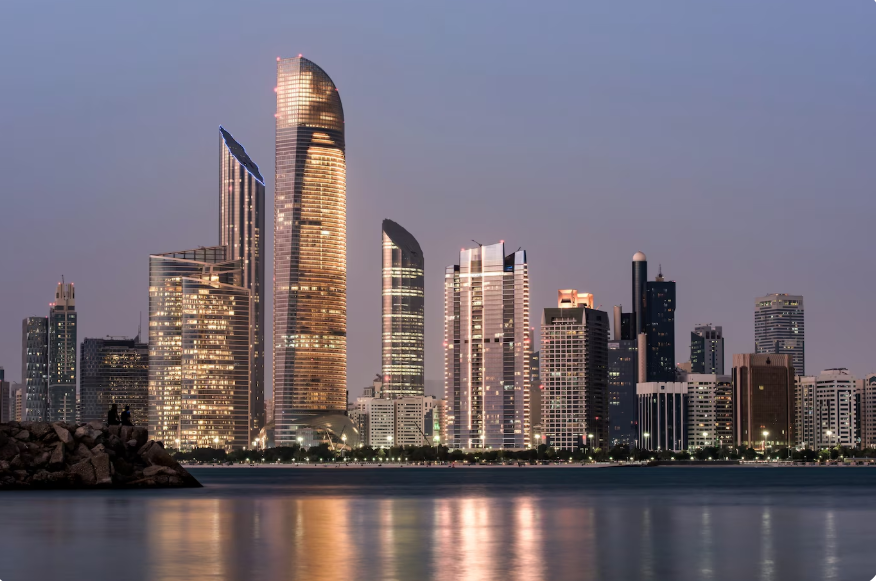How to Finance Off Plan Projects in Dubai as an Expat

The Dubai real estate market continues to be a global magnet for property investment, particularly through off plan projects in Dubai. For expatriates, buying off-plan property is one of the most affordable and flexible paths to property ownership in the UAE. But how exactly can expats finance such investments?
In this guide, we’ll explore the most effective financing options available for expats interested in off-plan properties, along with tips on eligibility, payment plans, and how to maximize your return.
Why Off Plan Projects in Dubai Are Popular Among Expats
Before diving into financing, it’s worth understanding why off plan projects in Dubai are so attractive to expatriate investors:
-
Lower Entry Prices: Off-plan units are usually priced lower than ready properties.
-
Flexible Payment Plans: Developers offer post-handover payment options, sometimes over 5–7 years.
-
Capital Appreciation: Early investors benefit from increased value by the time the project is completed.
-
Developer Incentives: Expats often enjoy waived DLD fees, service charges, or fully furnished options.
Now let’s look at how you can finance one of these projects if you’re living outside your home country.
1. Developer Payment Plans
Most off-plan buyers opt for developer-backed payment plans. These do not require bank financing or heavy paperwork, making them ideal for first-time expat buyers.
Typical Structure:
-
10% to 20% down payment upon booking.
-
Remaining payments spread across construction milestones.
-
Final 20% to 40% due at handover (some plans extend post-handover for 2–5 years).
Developers like Emaar, Sobha, Azizi, Danube, and Binghatti offer highly attractive plans for their off plan projects in Dubai, some requiring as little as AED 5,000 to book.
Pros:
-
No interest or mortgage involvement.
-
Easier approval (passport and visa copy usually sufficient).
-
Flexibility with smaller, periodic payments.
Cons:
-
You must fund payments from personal savings or income.
-
No mortgage leverage means higher cash commitment.
2. UAE Mortgage for Expats
If you’re looking to finance through a bank, expats can apply for a UAE mortgage, although financing off-plan projects comes with specific conditions.
Requirements:
-
Minimum monthly salary (usually AED 15,000+).
-
Employment history in the UAE or abroad.
-
20% to 25% down payment for off-plan.
-
Clean credit history.
Some banks in the UAE (e.g., Mashreq, Emirates NBD, ADCB, Abu Dhabi Islamic Bank) offer mortgage options on selected off plan projects in Dubai. However, financing is typically only available for projects approved by the bank and nearing completion.
Key Features:
-
Loan-to-value (LTV): 75% for UAE residents, 50%–60% for non-residents.
-
Interest rates: Fixed or variable, starting around 3.99% annually.
-
Tenure: Up to 25 years.
Pros:
-
Helps leverage your investment.
-
Ideal for higher-value properties (AED 1.5M+).
-
May offer insurance and financial protection.
Cons:
-
Longer processing time.
-
Strict eligibility and document verification.
-
Limited to certain developers and projects.
3. International Financing Options
Some expats explore international mortgage options from banks in their home country, especially for high-ticket off-plan properties.
Certain global banks and private lenders offer cross-border mortgage services tailored for UAE property investment. These are mostly used by HNWIs (High Net Worth Individuals) or corporate buyers.
Tip:
Always consult a legal advisor to understand tax implications and currency risks when choosing this route.
4. Private Financing or Developer Tie-Ups
Developers sometimes partner with private lending institutions or offer in-house financing. These options are particularly useful if you do not qualify for a mortgage or prefer not to involve a bank.
This is common in off plan projects in Dubai that cater to international buyers, particularly those launched at real estate exhibitions or overseas events.
Watch for:
-
Higher interest rates.
-
Shorter tenures (3–5 years).
-
Limited availability based on nationality or project stage.
5. Using Crypto and Alternative Assets
A growing number of developers in Dubai now accept cryptocurrency or tokenized payments for off-plan property purchases. While still relatively new, this option is gaining traction, especially among younger investors.
For example, some off plan projects in Dubai by developers like Damac and Ellington now facilitate crypto-based transactions using Bitcoin or USDT.
Important:
Ensure the transaction complies with UAE regulations and is facilitated through a licensed platform.
Documents Required for Expats (General)
To finance or purchase off-plan property in Dubai, expats typically need:
-
Passport copy (with valid visa if resident)
-
Emirates ID (if applicable)
-
Salary certificate or bank statements
-
Proof of address
-
Signed booking form and payment schedule
Mortgage applicants will also need:
-
Credit report (local or international)
-
Employer NOC
-
Down payment proof
Final Thoughts
Financing off plan projects in Dubai as an expat is more accessible than ever. Whether you choose developer plans, mortgages, or alternative financing methods, Dubai’s property ecosystem offers flexible paths to ownership.
The key is to:
-
Choose a reputable developer.
-
Understand your financial commitments.
-
Align your investment with your income or exit goals.
If you’re ready to enter the UAE real estate market, the off-plan segment offers a smart and strategic entry point—especially with long-term payment plans and attractive pricing.




